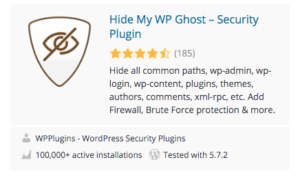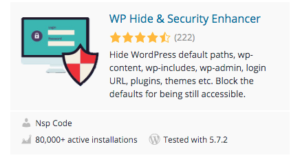Disclosure: This post contains affiliate links. I may receive compensation when you click on links to products in this post. For an explanation of my Advertising Policy, visit this page. Thanks for reading!
How to find out which plugins are being used in a WordPress site.
There are various ways to find out which plugins are being used in a WordPress website.
Here’s how to find out which plugins are used in a WordPress site using Google Chrome’s “View Page Source” feature:
- Go into Google Chrome (or your web browser of choice), type in the URL of the WordPress website you wish find which plugins it uses.
- Right Click, then click on “View Page Source“.
- It will then open up the HTML version of that page.
- Go up to the Google Chrome Menu at the top of your page and click “Edit“, then “Find“.
- Type in the Search Bar, “wp-content/plugins“
- In the same line, after each “/wp-content/plugins/” you will find the name of the plugin.
- There may be several lines containing “/wp-content/plugins/”. After each one you will find the name of a plugin.
However, if going through lines of code makes you a little dizzy, there are other ways to find out which plugins a WordPress website is using
In this post, we we go over other methods on how to find out which plugins are used in a WordPress website in addition to the method listed above.
We will also go over some frequently asked questions about why finding out which plugins a WordPress website uses could be very helpful with improving your own WordPress website.
Why bother finding out which plugins are being used on a WordPress site?
There are a few reasons why you would want to bother finding out which plugins are being used on a WordPress website.
First, you may come across a website whose design and functionality you would like to emulate.
Perhaps there’s a competitor in your niche who has certain functions on their website that you would like to implement on yours.
Maybe you’ve set up a website for someone else and forgot which plugins you actually installed for them, but you no longer have access to that website’s dashboard.
Your website could even be crashing or malfunctioning and the cause could be directly related to a plugin you have installed.
Troubleshooting plugins and themes is part and parcel of running a WordPress website from time to time.
However, sometimes we download and activate many plugins that we don’t even realize we’re using behind the scenes and we’re afraid that if we deactivate one of them our site will crash.
So how do we know which plugins are causing the difficulties in running our websites and which plugins are essential to the functioning of our websites?
In order to troubleshoot the functioning of your website or lack thereof, you need to know which plugins are running and where there may be conflicts.
As we all know, not all WordPress plugins and themes play well together.
If you have a few dozen plugins running on your WordPress website this could be a timely endeavor.
Finally, you may actually have deactivated some WordPress plugins but their code is still installed on your website.
Believe it or not, sometimes even deactivated plugins that are sitting in our dashboards can also cause conflicts with active plugins, themes and even newer versions of PHP operating on WordPress. It’s key to never leave any stone unturned.
Plugins that show which plugins are operating on your WordPress website.
Here are a few plugins which can help show you which plugins are running on your WordPress website.
 |
 |
 |
Furthermore, some of these can actually tell you what functions they are performing so you can decide which functions are truly essential and which are not.
This can help you not only troubleshoot any issues, but also help speed up your WordPress website by eliminating excess coding bloat sometimes caused by plugins.
Websites which show which plugins are running on a WordPress website.
Here are a few websites that you can use to show which plugins are running on a WordPress website.
They too, can also help you dissect not only which plugins are running on a particular WordPress website, but may also tell you the type of functions and other information you may find useful about the plugins.
How to hide a plugin name in WordPress.
Although this post is about how to find a plugin operating and running on a WordPress website, you may also want to hide a plugin name running on your own WordPress website from prying eyes.
The last thing any of us needs is a competitor sniffing around, trying to reverse engineer our websites whether that is for SEO or to simply clone our website.
Well the good news is there are plugins you can use to actually hide plugin names that are running on your WordPress website.
Check these out:
 |
 |
You may even want to use them as part of your overall security strategy.
How to find out which plugins are being used in a WordPress site, conclusions.
As you can see, there are various ways to find out which plugins are being used in a WordPress website. You can just go straight to the source code through your internet browser.
You can also use a few websites and simply type in the URL of the website you wish to find out which plugins are being used on it.
In addition, there may be plugins running on your own website which are causing your website to crash, go down or simply causing havoc with other plugins as well as your theme running on your WordPress website.
You may then decide whether you want to either get rid of the particular plugin or find a new substitute for that plugin.
In other words, there are plugins that can help you troubleshoot which plugins are beneficial and which plugins are causing your WordPress website to have issues.
Finally, you may actually want to do the opposite for your own WordPress website and hide the plugins that are running on it from the prying eyes of your competitors.
You also might want to hide the plugins running on your site from hackers who may want to exploit certain plugins in order to break into your WordPress website as well.
Plugins are an essential pillar of WordPress websites. They’re great for non-coders because plugins are essentially bundles of code which perform a function.
You simply download a plugin onto your WordPress website and with a few clicks you can have all kinds of different functionalities operating on your WordPress website. All without you needing to know a single line of code to make it happen.
But they also have their shortcomings.
You really need to keep on top of plugins that are operating on your WordPress website as well as perhaps finding out what plugins are working on your competitor’s websites that you can use for your own.
Either way, the methods I have gone over should help you accomplish all of those above.


